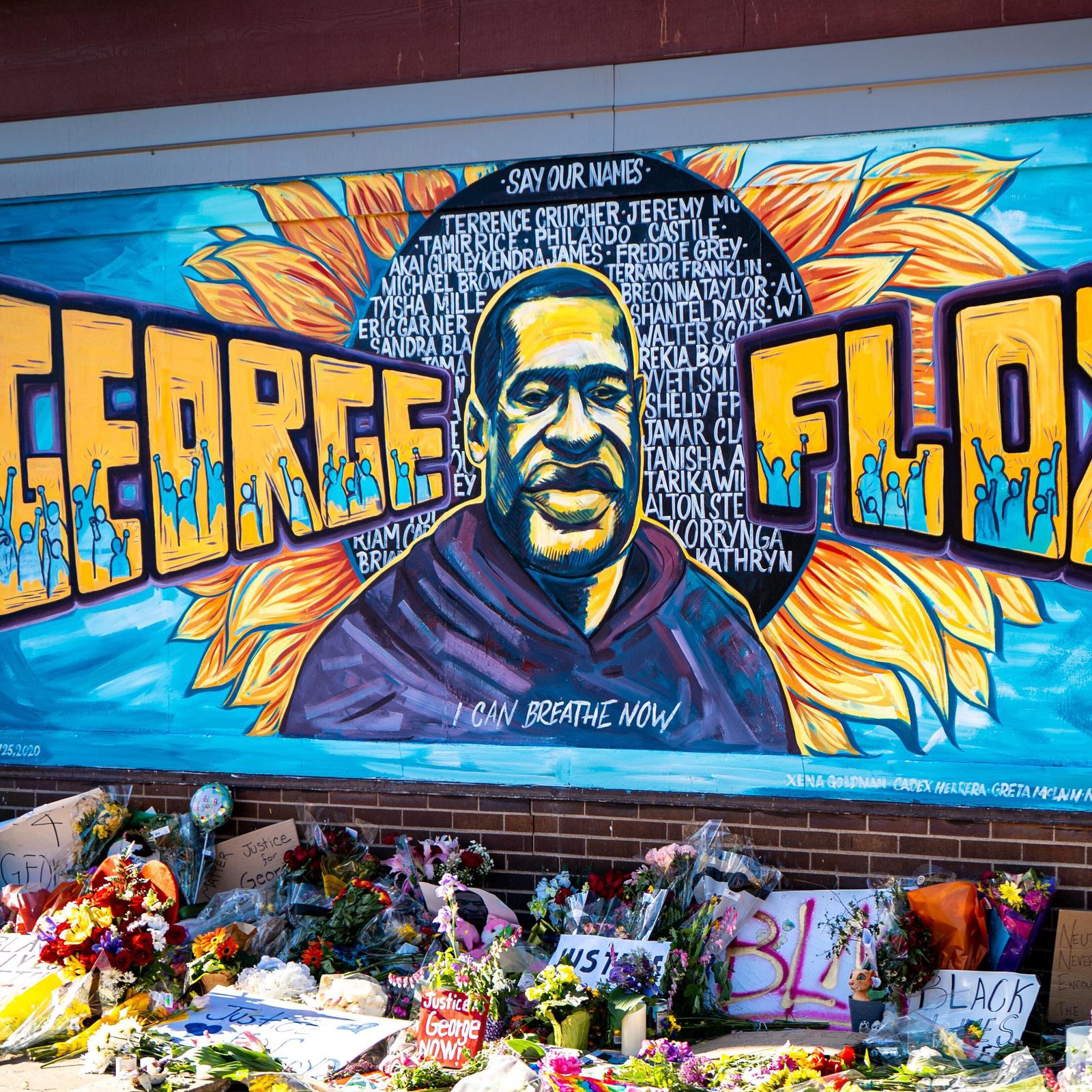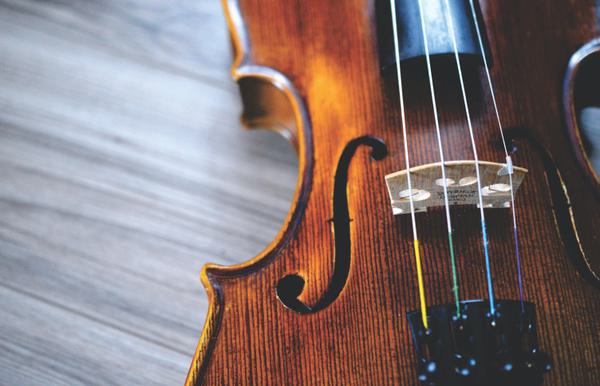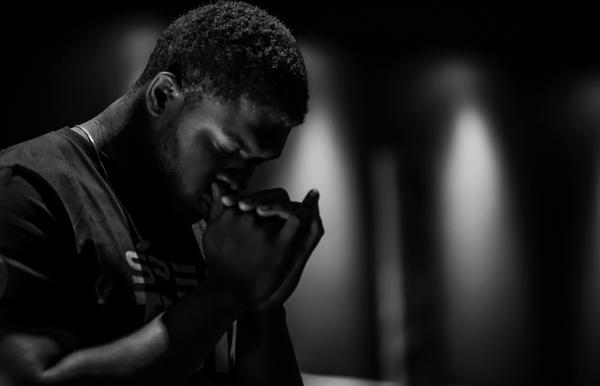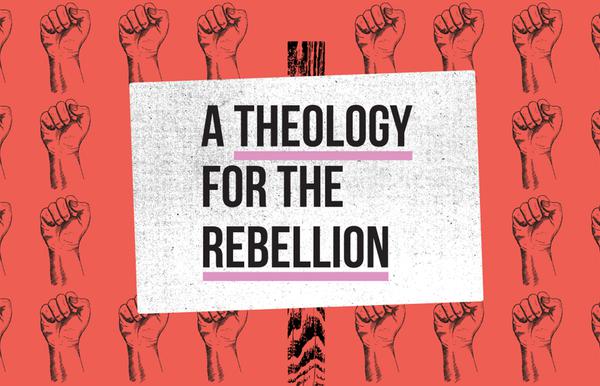The break-down of the latest 3x3 — our weekly survey designed to hear how youth leaders are doing in the midst of COVID-19.
Last week we asked you some questions for the Thursday 3x3 — a way to take the temperature of the youth ministry community during the Coronavirus pandemic. Every Thursday at 3pm we ask three questions that will take you no more than three minutes to answer. We had 50 responses so this is not a representative group and we can’t generalise from these answers to all Christian youth workers in the UK. This week we asked about racism, conferences and when you hope to do face-to-face youth work.
1. We'll meet again...in September?
We are working in significant uncertainty, and none of us know what the coming months hold. But we wanted to get a sense of how youth workers are seeing the next few months. So, we asked “When are you anticipating being able to do some form of face-to-face youth work again?”
Around half of the respondents said “September”. Many people are looking to schools re-opening and taking their cues from the ways that social distancing might be maintained in the new academic year. Where teams work across different schools there is some anticipation of the challenges of maintaining bubbles. And a few people were less specific, suggesting that “autumn” would be realistic — perhaps after half-term. Fourteen people told us they were either already doing some face-to-face youth work or anticipating meeting young people in the next week or so. Some of you are meeting young people one-to-one for walks, picnics or in small groups in the park, and one person told us they were planning on maintaining two metres by heading to the driving range at a golf club. A further seven are planning on doing similar socially distanced activities in July or August.
Finally, a handful of respondents wouldn’t give us a time, preferring to say that they would do so when it was safe to, when most children are back to school, when there was a vaccine, when parents consent or in one case “when denominational department heads agree to it”.
2. Conferences
The Youthscape team have been chewing over the possibility of running a one-day conference at the end of July, to help youth workers develop vision and ministry for the coming year. Our initial thoughts were that it would involve three sessions over a 24-hour period from a Friday to Saturday evening. But we weren’t sure if there was appetite for something like this. So, we asked whether you’d be up for it.
You mostly are (hooray!). After listening carefully to your feedback we ARE going to be running a live online event in July, but we’ll be making a few tweaks to our plan thanks to the 3x3 results. We've noted that Saturdays are precious and ideally Zoom-free, so we’ll think about the best way to manage that. We’ll have more information for you at the end of this week!
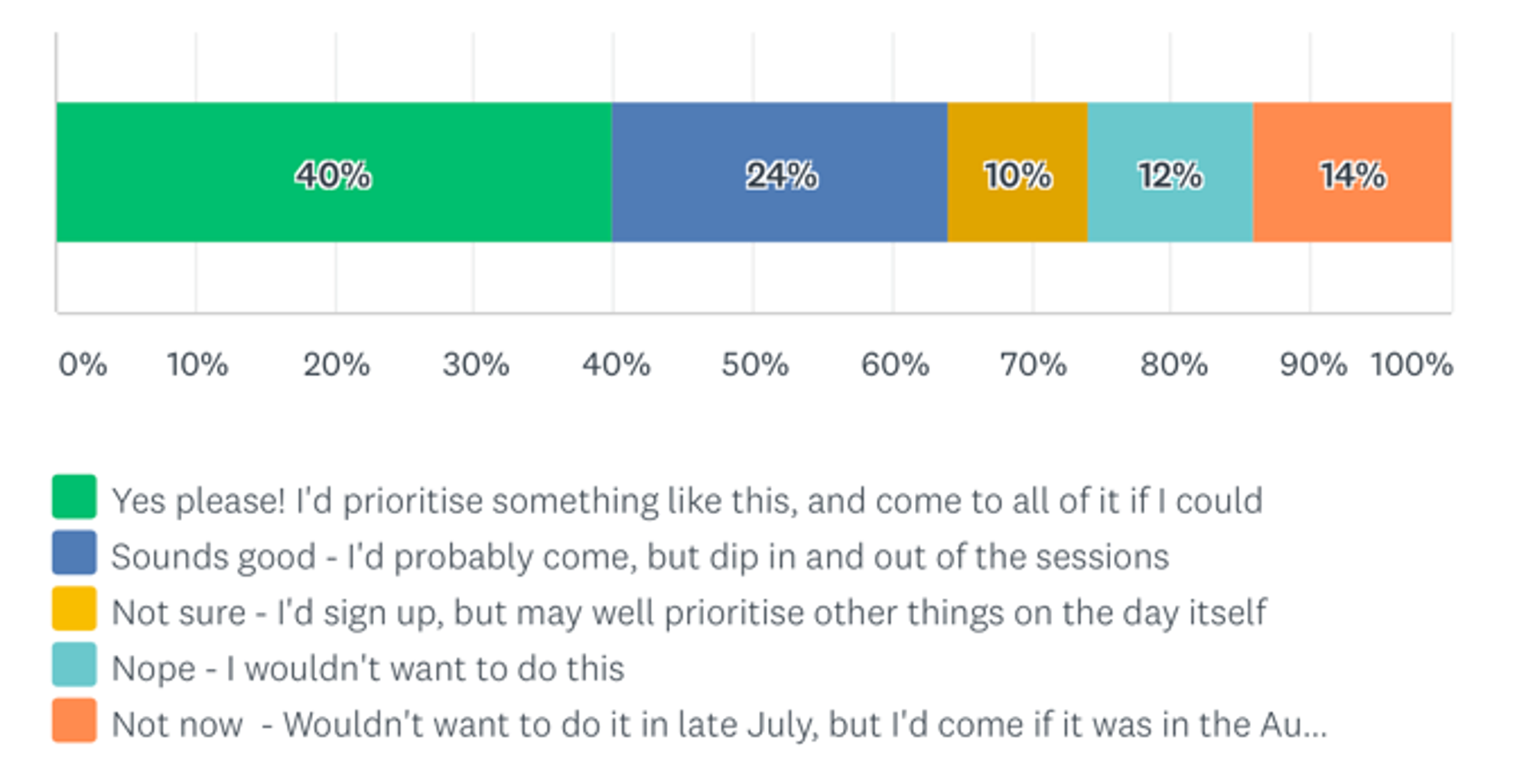
3. Talking about racism
This week’s news has been dominated by international protests against institutional racism, in response to the murder of George Floyd. Has the conversation been happening between Christian youth workers and young people they know? The majority (56%) had engaged with young people on the topic of racism in the last week and a further 20% said they had "somewhat" engaged. A quarter (24%) said "no", but we don’t know whether this is because they are furloughed or because they chose not to engage with it for other reasons.
Have you engaged with young people on the topic of racism in the last week? This might have been on a call, online or in some other way.
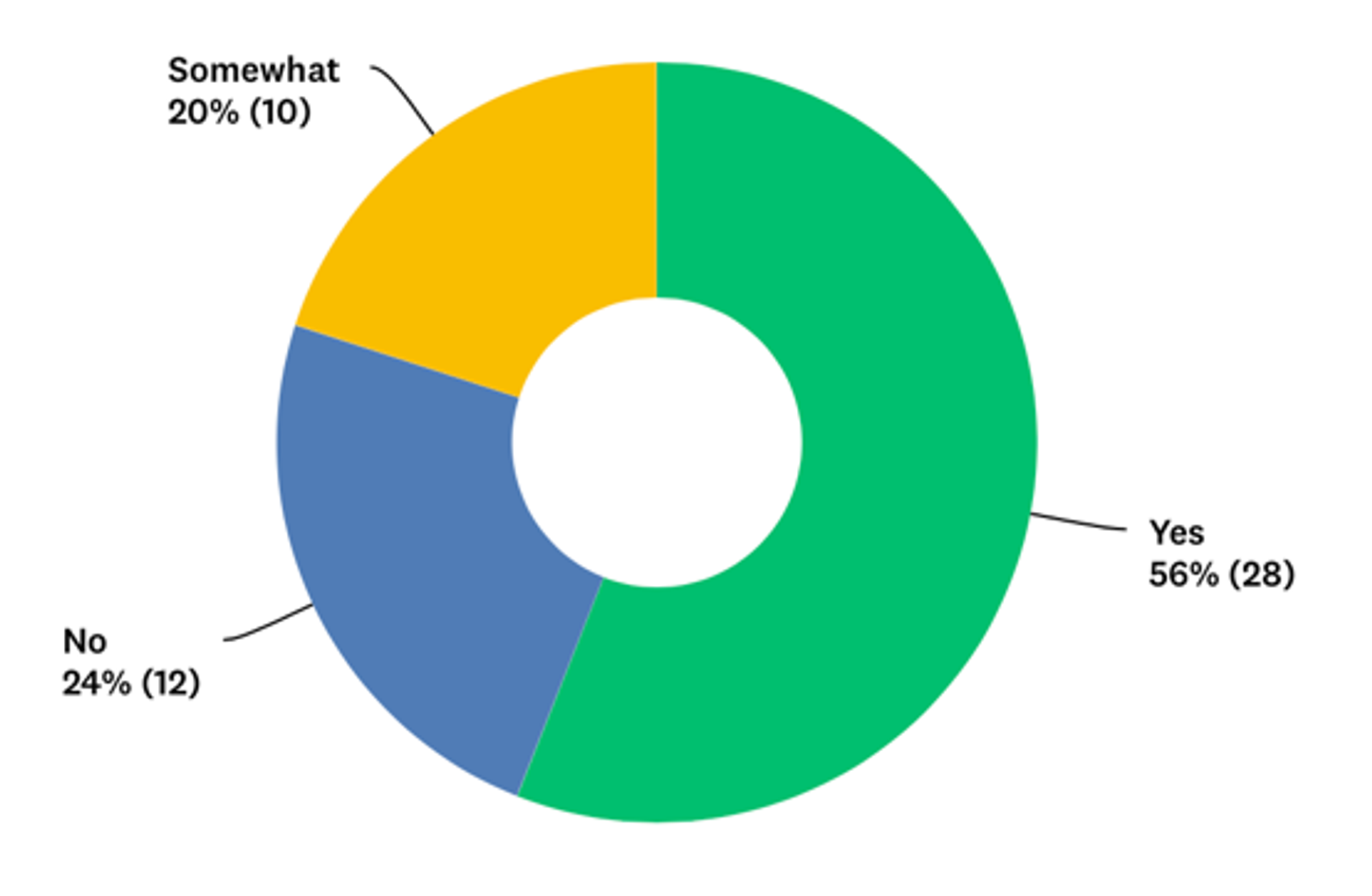
Twenty-eight of the 50 respondents added further comment, with 18 people describing how they had engaged with the conversation. Most of these were discussions held during a regular online youth group session (usually Zoom calls). A few people told us that they had changed their plans in order to make space for this. For some this was adapting a session plan, but others shifted more dramatically away from playing games to discussing justice, for example. Many of these youth workers engaged in a range of ways and across different platforms: sharing resources, hosting discussions, talking about the situation on daily vlogs and making it the subject of Instagram stories.
“Led my discipleship group and outreach group in a conversation, shared resources on social media pages/groups, led discussions in our group chats and talked about it in the daily videos I’m doing.”
One person said their team had crafted a formal statement together, while another described a team conversation about becoming more intentionally inclusive. The only mention of protest in these comments was from one person who said they would have invited young people to protest if social distancing hadn’t been an issue. Three people described different ways that they had engaged with or listened to young black people, including watching young people’s accounts online and going for a walk with a young man to ask about his experience. A few people mentioned the need to support and encourage young people generally.
“I asked young people what they made of what was happening in the news. They were distressed, especially by the violence, and appalled by Trump.”
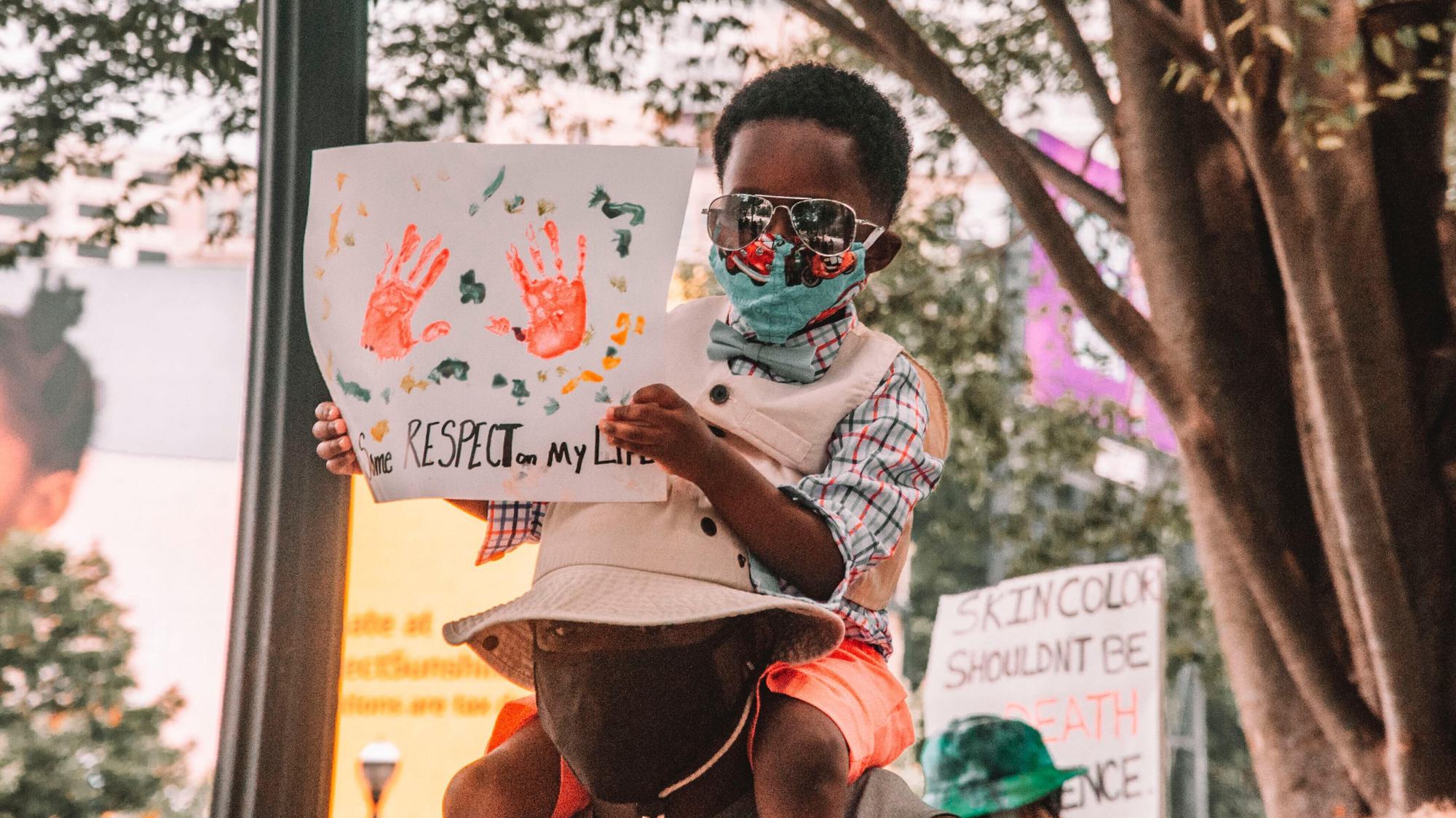
There were some interesting contrasts in the comments. The first is whether this conversation is new for youth groups. Although the Black Lives Matter movement has been around for a few years, public attention to racism in the UK has been held in a new way over the last week or so. So while one person said “I think it’s the beginning of the conversation and we are going to carry it on next week”, someone else told us “This topic is something we have spoken on before and have done unconscious bias training with our young people and spoken about systemic problems in the UK.” I suspect context plays a large part in whether this is a familiar topic for youth workers. Those of us working in less diverse environments (towns or churches), may not have engaged as much in the past. It will be interesting to see going forward whether this is a topic that continues to break through into majority white environments.
The second contrast is around how responses are likely to differ according to context. This becomes clear when we read these two comments.
“We held a listening circle on zoom open to all church families, the majority of which are from the BAME community. We led prayers for George Floyd online and had a time of silence and candle lighting.”
“Our youth group yesterday focused on how we can respond to this from our context of middle-class white community.”
As a white woman in a mostly white church, my conversations so far have been discussing our thoughts and and what our responsibilities are. So, it was striking to hear how communities are responding that are directly affected. Listening to one another, praying for the family and holding a space of lament are perhaps much more likely to happen in communities that experience the trauma of racism.
And finally...
We asked if there was anything else you wanted to tell us. Some of you reached out to say thank you for the work the Youthscape team are doing, which was kind—thanks! In general, it seems that there’s a fair amount of tiredness and frustration. Some of you are not sure how long you’re going to have a job, struggling with online youth work or feeling undervalued. Furlough is creating uncertainty about your calling and, for some of you, lockdown is eating away at your enthusiasm and creativity, as well as young people’s. You said they seem to be feeling “increasingly overwhelmed with everything in the news and coping with lockdown and uncertainty about school. Feels like the wheels are coming off a bit.”
It’s really tough, so thanks for sharing. We need to look out for one another in these strange times. At the least, go take a quick look at what other youth workers wanted to say to you a couple of weeks ago.
Let’s close this off with this final piece of optimism from one of our respondents. “I’m tired, but at least the people I love are safe and I had a McDonald’s yesterday without having to queue for 3 weeks.” I think we can all get behind that…



